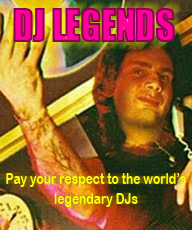3 tips for beginners.
3 tips for beginners. Posted on: 31.10.2012 by Luciano Hyppolite Hi everybody, today I will tell you 3 pieces of advice that I believe are fundamental if you're just starting making music.1. Learning how to produce music takes time, it takes a lot of time and good practice. You won't become a top music producer overevening . You won't sound like skrillex, deadmau5, afrojack, porter robinson or whoever in just a couple of days you played with ableton, logic or reason. Look at a couple of examples, Madeon he is only 18 but he has been producing music since he was 11 or so, also Porter Robinson. Deadmau5 made music like for 10 years before que got big succes. It is a long learning curve, it's like learning a new instrument or languange. You will have to learn lots of stuff, midi, software hardware etc. So my advice is just keep making music, keep making songs, and making songs. Only if you go through a huge volume of work you will start getting better. You will get frustrated, your first songs will suck, but take into consideration this advice and maybe you wont get so frustrated. 2. Sound Design. I like to compare sound design to building an instrument. It's a whole craft and area of study. So if you are just starting to produce, don't go down the rabbit hole of sound desing. It will diverge your atention and you will be focusing on getting that squealchy dirty assain mega bass rather than the music. You are producing music, so, focus on the music not the sounds. Work with presets, there's nothing wrong with that. Find 10 presests you like for bass, 10 for leads, etc and work with that. Limiting your options will encourage your creativity. So finally, at first when you are just starting, focus on the music, learning the software and working with presets, again, there's nothing wrong with that, they are there to be used! 3. Music Theory. If you are making electronic music, you are making MUSIC so, soooome kind of understanding about music you have to have. I don't mean that you have to be an expert piano player, know all the chords, their inversions, scales, modes etc. But you have to have some kind of knowledge at least how music is arranged. Learning music theory will help you a lot as you are making music, however if you dont want to learn about scales and stuff my advice for you is at least listen to different styles of music other than the one you like. If you are into techno, listen to rock, jazz, if you are into dubstep listen to proggesive rock, blues, experimental etc. Listening to other styles of music will subconscious give you some idea of music theory and arrangement. Analyze your favourite song, instruments they use, divide them into sections, A, B, C. Maybe its a bit messy all of this information but I believe that are very usefull advices that will help you not getting so frustrated, how to focus your concentration in the early steps and how to get a different more analytical approach to music. Hope they are usefull for everyone! Check out my blog I will try keeping it updated! http://alchemusic.blogspot.com.ar/ | |
| Arline Receveur 31.10.2012 |
Originally Posted by Gokari
|
| Ervin Calvery 31.10.2012 |
Originally Posted by Gokari
I have some favourite books, too. Check out Walter Piston and Kent Kennan's theory books - they are great. (You don't need the latest edition) |
| Estrella Rozzo 31.10.2012 |
Originally Posted by Gokari
OT: My advice is, do it for the love of music, and not for the (potential) fame. And don't let your head down if it doesn't go too well. With enough time & dedication, you'll get there! |
| Luciano Hyppolite 31.10.2012 | Hi everybody, today I will tell you 3 pieces of advice that I believe are fundamental if you're just starting making music. 1. Learning how to produce music takes time, it takes a lot of time and good practice. You won't become a top music producer overevening . You won't sound like skrillex, deadmau5, afrojack, porter robinson or whoever in just a couple of days you played with ableton, logic or reason. Look at a couple of examples, Madeon he is only 18 but he has been producing music since he was 11 or so, also Porter Robinson. Deadmau5 made music like for 10 years before que got big succes. It is a long learning curve, it's like learning a new instrument or languange. You will have to learn lots of stuff, midi, software hardware etc. So my advice is just keep making music, keep making songs, and making songs. Only if you go through a huge volume of work you will start getting better. You will get frustrated, your first songs will suck, but take into consideration this advice and maybe you wont get so frustrated. 2. Sound Design. I like to compare sound design to building an instrument. It's a whole craft and area of study. So if you are just starting to produce, don't go down the rabbit hole of sound desing. It will diverge your atention and you will be focusing on getting that squealchy dirty assain mega bass rather than the music. You are producing music, so, focus on the music not the sounds. Work with presets, there's nothing wrong with that. Find 10 presests you like for bass, 10 for leads, etc and work with that. Limiting your options will encourage your creativity. So finally, at first when you are just starting, focus on the music, learning the software and working with presets, again, there's nothing wrong with that, they are there to be used! 3. Music Theory. If you are making electronic music, you are making MUSIC so, soooome kind of understanding about music you have to have. I don't mean that you have to be an expert piano player, know all the chords, their inversions, scales, modes etc. But you have to have some kind of knowledge at least how music is arranged. Learning music theory will help you a lot as you are making music, however if you dont want to learn about scales and stuff my advice for you is at least listen to different styles of music other than the one you like. If you are into techno, listen to rock, jazz, if you are into dubstep listen to proggesive rock, blues, experimental etc. Listening to other styles of music will subconscious give you some idea of music theory and arrangement. Analyze your favourite song, instruments they use, divide them into sections, A, B, C. Maybe its a bit messy all of this information but I believe that are very usefull advices that will help you not getting so frustrated, how to focus your concentration in the early steps and how to get a different more analytical approach to music. Hope they are usefull for everyone! Check out my blog I will try keeping it updated! http://alchemusic.blogspot.com.ar/ |
| Stanley Topoleski 06.11.2012 | as quoted from youtube on the video for the youtube syphony orchestra "the contest is not fair some of us do not know how to read sheet music"... In short music theory, learn it or burn |
| Delphine Scalese 04.11.2012 | I have to agree with both Loopcat and Rukkus the sound design hole is big, wet and very easy to fall into. I lost count the hours that I have put into sound design. 1 Plus though, I have lots and lots of patches for massive. |
| Aron Gausin 03.11.2012 | Thanks for the post Alchemy. I've been working on producing for well over a year now, with zero music/instrument background and it isn't until now that I can properly get whats in my head into the DUI. It's a long process for sure, but its good to see reassurance like this on these sites for beginners. Keep updating your blog because I will be following it!! |
| Donita Jungreis 02.11.2012 | Thanks alchemy, Your tips are really helpful for beginners like me. |
| Cassidy Galindez 01.11.2012 | LoopCat I basically live on that boat. I fall into the sound design hole pretty much every attempted production session. |
| Ming Devis 01.11.2012 | So much gold in that post alchemy, nice one.. The sound design bit does my head in to this day and can really distract you. When I used to write guitar music I restricted myself to my acoustic guitar just so I wasn't so distracted from effects. If it sounds good nice and raw it's usually good. As I'm learning how to produce I get tempted to open up Massive or some other synth and and start playing with sounds.. before I know it it's 12' o clock I'm red eyed and I've done jack shit in the way of laying anything down lol. |
| Arline Receveur 31.10.2012 |
Originally Posted by Gokari
|
| Ervin Calvery 31.10.2012 |
Originally Posted by Gokari
I have some favourite books, too. Check out Walter Piston and Kent Kennan's theory books - they are great. (You don't need the latest edition) |
| Estrella Rozzo 31.10.2012 |
Originally Posted by Gokari
OT: My advice is, do it for the love of music, and not for the (potential) fame. And don't let your head down if it doesn't go too well. With enough time & dedication, you'll get there! |
| Virgina Remson 31.10.2012 | What are some good places to learn music theory? Would you recommend taking a course on it, or is the internet a sufficient enough tool to learn what you need to know? One of my biggest hardships in production is melody/scales/chords and I'd love to learn. |
| Celine Surico 01.11.2012 | The sooner you find your own voice, the better chance you will be noticed. Don't become another DeadMau5 clone. |
| Ervin Calvery 01.11.2012 | +1 for music theory. It's the best. |
| Arline Receveur 31.10.2012 | I cant stress enough how important music theory is. Make sure you learn it!!! When I first started producing music I found that not knowing my way around the chords, inversions, scales blah blah blah I had a hard time making music to paper. I personally feel people will benefit hugely from learning them. They help with EVERY genre. If I can add something else for beginners to do is don't bombard yourself with 1000 VST's and just start of with 1 or 2 and learn how they work. That way you will become a master of them and you'll then be surprised if you know your way around a synth or 2 you can generally make any sound your looking for. There is so many things beginners should do but I believe alchemy has really covered the main 3 imo. |
<< Back to Producer tips and DAW informationReply



